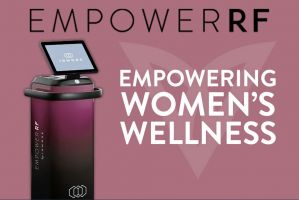
Water Births
Water is revered in every culture for its life-sustaining and healing properties. Women have been using water in labor and birth for millennia. Ancient Egyptian petroglyphs depict water births of babies destined to become priests or priestesses. The oral histories of indigenous peoples on every continent - from New Zealand to Mongolia, Panama to Japan - include stories about women giving birth in the ocean tide pools, in streams, and in shallow lakes.
In the 1960s, Igor Tjarkovsky, a swimming instructor and midwife, popularized water birth in Russia. In 1983, Herman Ponette, an obstetrician, began installing birthing tubs in his hospital in Belgium. Since then, he has attended over 5,500 water births.
In the United Kingdom, even the government recognizes the potential benefits of water birth. In 1992, the UK House of Commons recommended that whenever possible, women have the option to birth in water. Nearly half of all maternity hospitals in the UK have installed birthing pools and there are at least 2,000 water births per year.
Benefits of Water Birth
Many women find that being immersed in water during labor and birth gives them an increased sense of control, comfort, and relaxation. If you are the kind of person who enjoys spending time in the water, you may enjoy the following benefits from birthing your baby in water.
- You may feel more relaxed and better able to cope with your contractions
- You may need less pain medication because your contractions are easier to cope with
- You may find it easier to move intuitively to ease your baby through your pelvis
- Your cervix may open faster, and your labor may be shorter
- You may have less need for medication to help your labor because your contractions work better
- You may have less need for help from forceps, vacuum, or cesarean to give birth to your baby
- You may have less need for an episiotomy and less chance of having a serious tear
Some people have also suggested that water birth is a gentler experience for the baby as well as for the mom.
Is Water Birth Safe?
The research about the safety of water birth is not conclusive. However, the existing studies seem to suggest that birthing in water is a safe option for women with healthy pregnancies and uncomplicated labors.
To understand the available evidence about water birth, you need to know a little about medical research. The gold standard for a research study is a Randomized Controlled Trial (RCT), meaning that the subjects are randomly assigned to either a treatment group or a control group. However, there have not been any good RCTs about water birth because most women would not be willing to be randomly directed to birth in water or on land.
The next best thing to an RCT is a cohort study. A cohort study compares a treatment group with a control group, but the subjects are not randomly assigned so there is a chance for bias. There are several large cohort studies looking at water birth. They have all found that when compared with land birth, water birth is associated with:
- Similar or lower rates of infection in mothers and babies
- Similar or better results on tests that evaluate the baby's wellbeing after birth
- Similar or lower rates of babies admitted to special care nurseries
- Similar or lower rates of baby deaths
A case study describes the experience of one patient or a few patients. Case studies are the weakest form of evidence, although they are sometimes the only way to learn about very rare problems. Several case studies have reported on babies who have become sick or died after being born in water. However, these problems have not been reported by any of the larger, better quality studies
What Stops Babies from Breathing Underwater?
Several factors inhibit babies from breathing underwater at the time of birth:
- Hormones: You might be surprised to learn that your baby has already begun practicing breathing before birth, inside the uterus. Researchers have observed breathing movements in the human fetus as much as 40% of the time. However, in the days before labor begins, breathing activity decreases dramatically because of prostaglandins, hormones released by the placenta which also play a role in starting labor.
- Temperature: Newborn babies are sensitive to temperature. They are stimulated to breathe by the cooler temperature of air compared to the warm environment inside the mother. However, when born into water that is at a similar temperature to the mother's body temperature, they are not stimulated to breathe.
What Stops Babies from Breathing Underwater?
- Dive Reflex: Humans have a powerful dive reflex that maximizes their ability to hold their breath underwater. This reflex is associated with the larynx, the opening to the lower airway. The opening to the larynx is covered with more taste buds than the entire surface of the tongue. These taste buds can distinguish between bodily fluids (like mucus, urine, blood, or amniotic fluid) and other foreign fluids (like water). When they encounter a foreign fluid, they elicit the dive reflex. The opening to the airway closes and the fluid is swallowed, not inhaled. In addition, nerves in the face sense when the face is immersed in water and send messages to the brain. The brain responds by inhibiting breathing, decreasing heart rate, and redirecting blood to the brain and heart where it is needed most. This reflex helps to prevent babies from gasping for air when they are born underwater.
- Hypoxia: Babies are born experiencing acute hypoxia, meaning they are temporarily lacking oxygen. This inhibits breathing. However, babies born experiencing severe, prolonged lack of oxygen may gasp for air. As a result, your provider will monitor your baby's wellbeing during labor. If there are any signs that your baby may be experiencing a prolonged lack of oxygen, your provider will ask you to get out of the water.
Guidelines for Water Birth
To help keep you and your baby safe while having a water birth you need to:
- Be having a healthy pregnancy
- Be 37 weeks gestation or later
- Be in a warm (not hot) bath
- (between 97°F -100°F)
- Leave the water if your care provider has any concerns with your or your baby's wellbeing

Related Articles

Obstetrics and Gynecology
What Is Covered in a Well-Woman Exam?
Now is the time to find out what makes you feel happy, healthy, and strong. Your health is...

Obstetrics and Gynecology
OakLeaf Clinics Opens a Mothers' Milk Depot and Dispensary
Families in Eau Claire and the surrounding area can purchase pasteurized human donor milk or donate...

Obstetrics and Gynecology
Types of Urinary Incontinence
Stress Incontinence Urine leaks when pressure is exerted on the bladder by coughing, sneezing,...

Obstetrics and Gynecology
EmpowerRF for Urinary Incontinence
Are you tired of planning your life around your leaky bladder? Do you wish you could do something...
